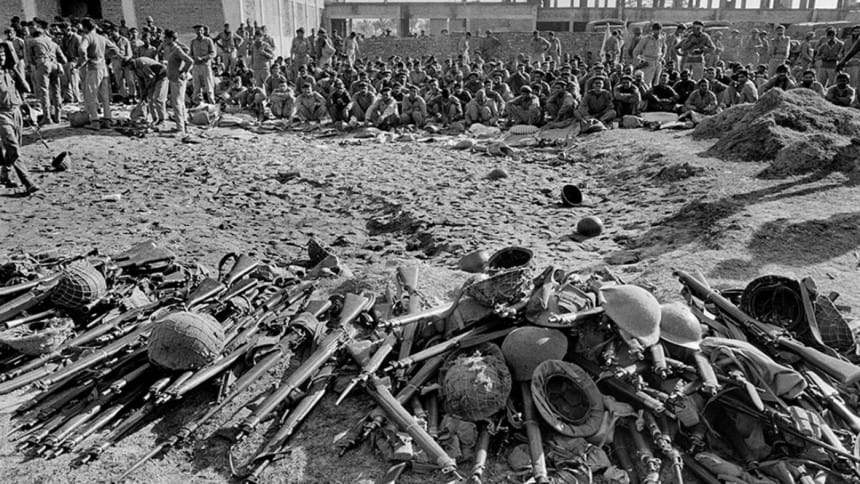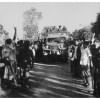War crimes probe 'in suitable time'

The investigation agency of the International Crimes Tribunal would start a probe against 195 Pakistani prisoners of war (POWs) whenever it found a “suitable environment” and “directives from the high-ups.”
The agency also called for simultaneous drives across the country to arrest local war crimes fugitives and bringing amendment to the International Crimes (Tribunals) Act, 1973 so that a court could order attachment of their property.
The top officials of the agency told these at a press conference held at its Dhanmondi office in the capital yesterday. The agency held the news briefing to disseminate information about different aspects of two war crimes cases as investigation was completed.
Coordinator of the agency Abdul Hannan Khan said they also shared the same opinion that the 195 POWs should be tried for committing crimes during the Liberation War in 1971.
Hannan, however, said as another country -- Pakistan -- was involved in the matter, they needed to get the government's directives before starting the investigation.
Agency Coordinator Sanaul Huq said, “We will start the investigation whenever we get a suitable environment and [necessary] directives.”
He added they had been collecting documents regarding the 195 POWs whenever they came across any pieces of evidence during investigation into other cases.
After independence, Bangladesh collected specific evidence of genocide against the 195 Pakistani army personnel, who were in Indian custody as POWs.
After a long-drawn stressful negotiation over the POWs, a tripartite agreement was signed in Delhi in April, 1974 in which Bangladesh said “having regard to the appeal of the prime minister of Pakistan to the people of Bangladesh to forgive and forget the mistakes of the past,” Bangladesh decided not to proceed with the trial as an act of clemency.
However, legal experts say there is no legal bar to trying the 195 POWs and there has also been a longstanding demand to try them at the International Crimes Tribunal, which is now trying their local collaborators.
The demand of trying the POWs has been intensified after Pakistan has recently denied committing any war crimes in 1971.
FUGITIVE LIST GETS LONGER
Despite several directives by the International Crimes Tribunal and initiatives of the government to arrest the war crimes accused, police have so far failed to capture more than half of them.
Two war crimes tribunals had issued arrest warrants against 102 war crimes accused in 18 cases since August last year, but the law enforcers could arrest only 45 of them, according to The Daily Star reports.
Sanaul Huq yesterday said under the existing criminal law, a court could order attachment of property of a fugitive to force him or her to surrender. But, the ICT Act has no such provision, allowing the fugitives to use their property through family members.
The ICT law should be amended, he added.
He also said the law enforcers should carry out simultaneous drives across the country to arrest the war crimes fugitives. The drives should be carried out on a regular basis, he added.
“The scenario may change if the two initiatives were taken,” he observed.

 For all latest news, follow The Daily Star's Google News channel.
For all latest news, follow The Daily Star's Google News channel. 








Comments